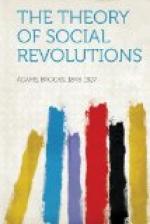“And the men of the city went out and fought with Joab; and there fell some of the people of the servants of David; and Uriah the Hittite died also.... But the thing that David had done displeased the Lord.
“And the Lord sent Nathan unto David. And he came unto him, and said unto him, There were two men in one city; the one rich and the other poor. The rich man had exceeding many flocks and herds:
“But the poor man had nothing, save one little ewe lamb, which he had bought and nourished up: and it grew up together with him, and with his children; it did eat of his own meat and drank of his own cup, and lay in his bosom, and was unto him as a daughter.
“And there came a traveller unto the rich man, and he spared to take of his own flock, ... but took the poor man’s lamb, and dressed it for the man that was come to him.
“And David’s anger was greatly kindled against the man; and he said to Nathan, As the Lord liveth, the man that hath done this thing shall surely die: ...
“And Nathan said to David, Thou art the man. Thus saith the Lord God of Israel ... Now therefore the sword shall never depart from thine house; because thou has despised me ... Behold, I will raise up evil against thee out of thine own house, and I will take thy wives before thine eyes, and give them unto thy neighbor.” Here, as the heading to the Twelfth Chapter of Second Book of Samuel says, “Nathan’s parable of the ewe lamb causeth David to be his own judge,” but the significant part of the story is that Nathan, with all his influence, could not force David to surrender his prey. David begged very hard to have his sentence remitted, but, for all that, “David sent and fetched [Bathsheba] to his house, and she became his wife, and bare him a son.” Indeed, she bore him Solomon. As against David or David’s important supporters men like Uriah had no civil rights that could be enforced.
Even after the judicial function is nominally severed from the executive function, so that the sovereign himself does not, like David and Solomon, personally administer justice, the same result is reached through agents, as long as the judge holds his office at the will of the chief of a political party.
To go no farther afield, every page of English history blazons this record. Long after the law had taken an almost modern shape, Alice Perrers, the mistress of Edward III, sat on the bench at Westminster and intimidated the judges into deciding for suitors who had secured her services. The chief revenue of the rival factions during the War of the Roses was derived from attainders, indictments for treason, and forfeitures, avowedly partisan. Henry VII used the Star Chamber to ruin the remnants of the feudal aristocracy. Henry VIII exterminated as vagrants the wretched monks whom he had evicted. The prosecutions under Charles I largely induced the Great Rebellion; and finally the limit of endurance was reached when




